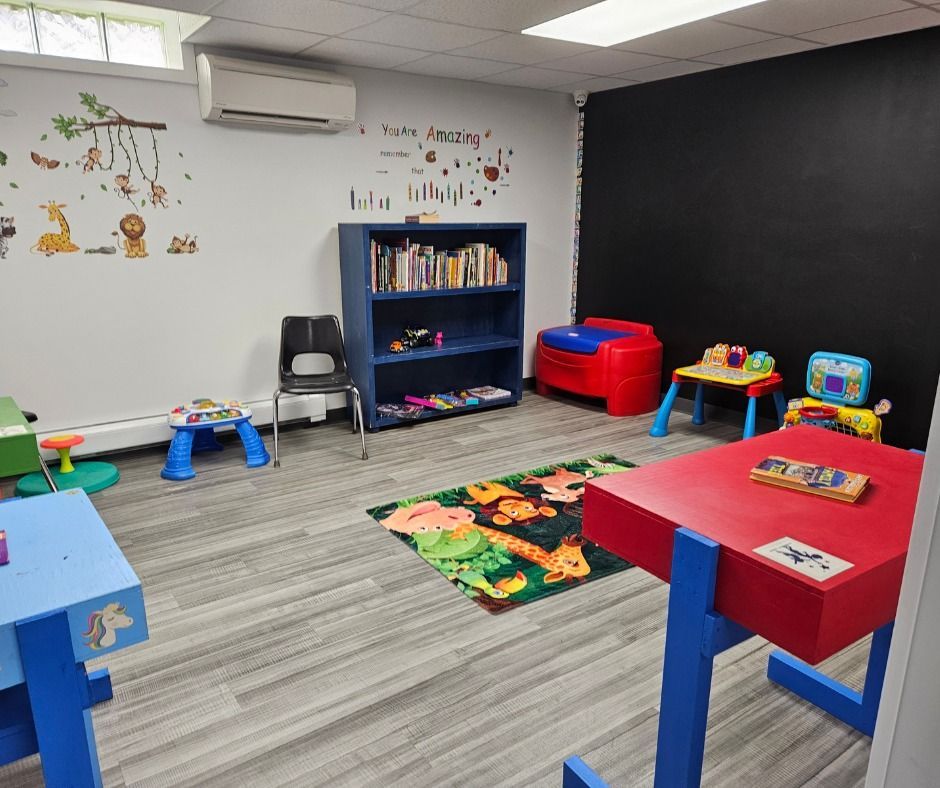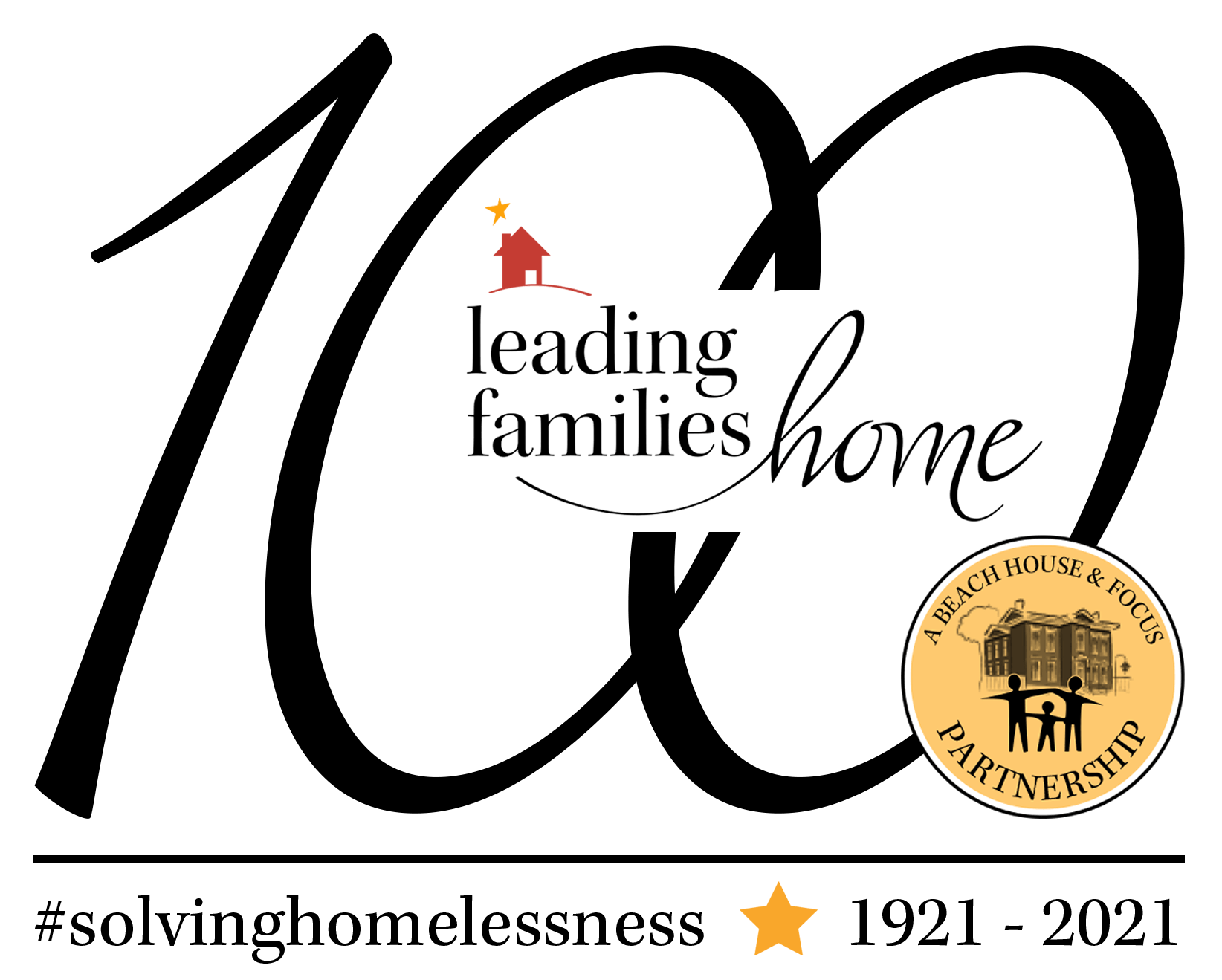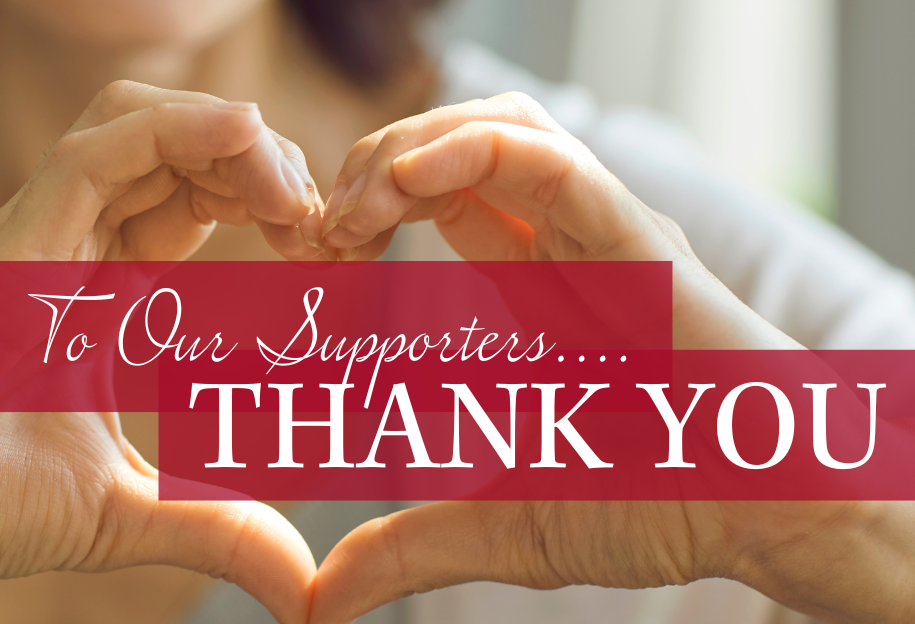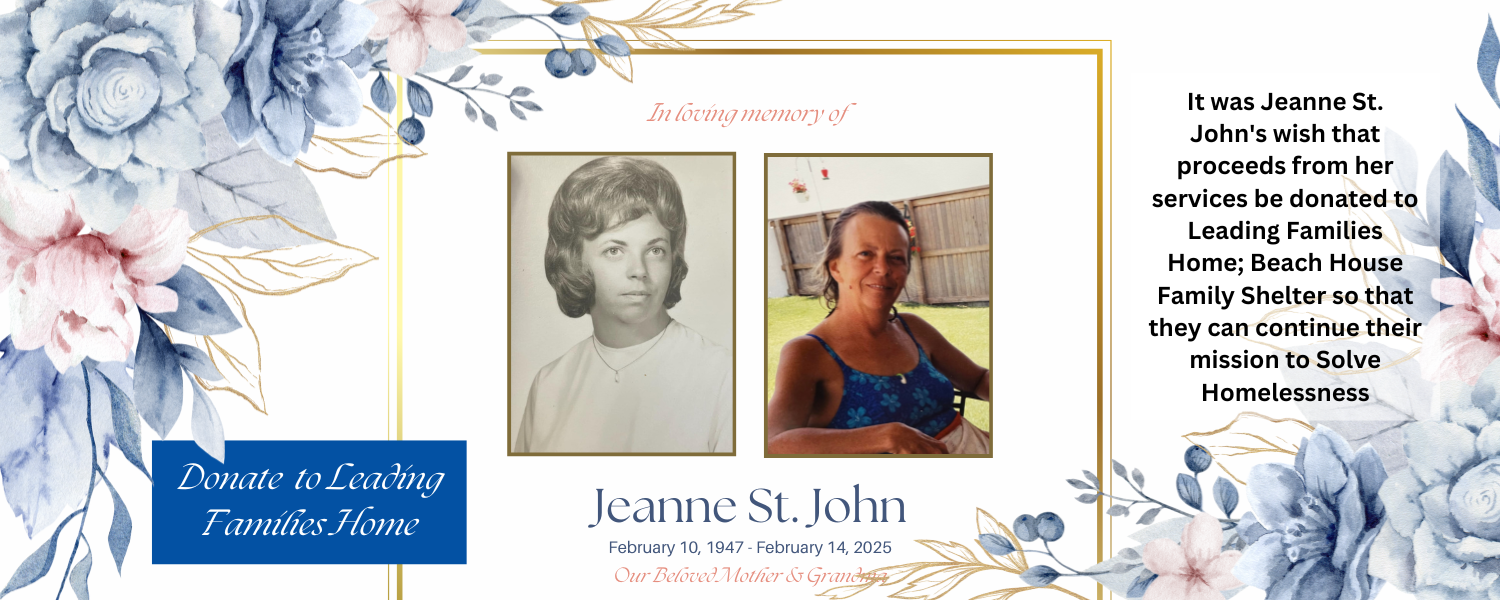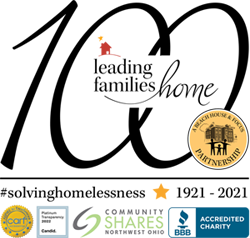This Is Resilience: To Do Better for Myself & My Children
At Leading Families Home, 14 percent of our Participants cite Domestic Violence as the main reason for their homelessness. Domestic Violence is “violence committed by intimate partners, immediate family members, or other relatives.” According to data from the National Crime Victimization Survey (NCVS), in 2003–12, “[d]omestic violence accounted for 21% of all violent crime.”
The National Domestic Violence Hotline organization reveals that “[m]ost female victims of intimate partner violence were previously victimized by the same offender, including 77% of females ages 18 to 24, 76% of females ages 25 to 34, and 81% of females ages 35 to 49.”
These numbers are devastating, but seeing someone in a domestic violence situation is much, much worse. We see many women and children who flee these types of circumstances come to Beach House Family Shelter, and each story is heartbreaking.
However, simply escaping a domestic violence situation is a victory. And many survivors of domestic or intimate partner violence are amazingly strong. Their stories of strength and resilience can be breathtaking.
Such is the case for a woman who recently came to our shelter. For her safety, we won’t be using any identifying information and will refer to her as “Tela” as we tell her story.
Trauma & Injury
Tela fled a domestic violence situation in 2019, and found shelter at YWCA Domestic Violence Shelter. She transferred to Leading Families Home in September 2019.
About six or seven years ago, Tela was part of our FOCUS program (FOCUS merged with Beach House Family Shelter in 2016) where she received support, services, and shelter.
(FOCUS was founded in 1982, based on the tradition of faith and service by several pastors with congregations in the Old West End neighborhood of Toledo, Ohio, in response to growing community needs for services such as longer-term supportive housing, food, and social support. Helping people regain independence and economic stability through education and employment has been the core work of both organizations, making our merger a natural evolution of housing and social supportive services in the area. In 2016, FOCUS merged with Beach House Family Shelter to more fully support those experiencing homelessness in the Toledo area.[http://www.lfhtoledo.org/mission.php])
During her stay at FOCUS, Tela suffered a horrific accident that would change her life forever. At the hands of her boyfriend, Tela was thrown into oncoming traffic and was hit by a car.
This accident left her completely broken and fighting for her life. She went into a coma and didn’t come out of it for nine months. Because of this, she lost custody of both of her children. Her children were given to Tela’s father, because no one thought Tela would ever emerge from her coma and was likely to die.
Once Tela awoke from her coma, she was diagnosed with a Traumatic Brain Injury (TBI), a result of the violent impact from her accident. She was confined to a wheelchair, unable to walk or move her hands. To this day, Tela suffers multiple symptoms and physical limitations from her injuries.
However, Tela is a fighter. Her case manager says, “I’ve noticed that she is a person that has a drive about her, and she doesn’t let anything stop her from moving forward.”
Moving Forward
Tela awoke from her coma to serious, life-long injuries and trauma. Yet, her story didn’t end with her accident; she moved forward. She found Harbor Behavioral Health Services and receives mental health services from this organization.
Through the same organization, Tela is engaged in a vocational training program and attends ATS School of Business , where she goes to class three days a week. This works well for Tela, because the school offers smaller class sizes and are able to offer personalized attention to their students. She is hopeful that her training will support her goals for employment when she completes her courses. She also completes a monthly budget on a regular basis.
Through the school, Tela has built multiple relationships. She has also found friendships at the apartment complex where she lives. No matter what problems arise, Tela’s case manager notes that Tela is always able to find positive solutions.
Additionally, as a disabled adult, Tela receives a Supplemental Security Income (SSI) benefits each month to complement her income.
Her accident and subsequent TBI has left her with depression, anxiety, PTSD, memory loss, and chronic pain. Yet, somehow Tela finds a way to continue forward despite her disability.
Her case manager says, “She’s a rock star in her own right. And she should be commended for just hanging in there and persevering.”
Tela says, “I want to do better for myself and kids.”
Her case manager is very proud of Tela’s progress and her overall attitude torward her future. “Tela is resilient; she sets goals and expectations for herself despite her disability.”
Positive Outcomes
There are multiple positive notes in Tela’s life:
- Receives mental health services through Harbor Behavioral Health.
- Engaged in a vocational training program through Harbor at ATS School of Business and attends three days a week, which will lead her into employment when courses are completed.
- Building relationships with people at school and at the apartment complex where she lives.
- She is able to find positive solutions to problems that arise.
- She has good interaction with her case manager and can communicate her needs and wants.
- She completes a monthly budget with little assistance regularly.
- Receives an SSI benefit monthly.
Domestic Violence Help
If you are experiencing domestic violence, call 1−800−799−7233. If you are unable to speak safely, you can login to thehotline.org or text LOVEIS to 1-866-331-9474. You are not alone. ( National Domestic Violence Hotline )
Safety Alert: Computer use can be monitored and is impossible to completely clear. If you are afraid your internet usage might be monitored, call the National Domestic Violence Hotline at 1−800−799−7233 or TTY 1−800−787−3224.
(A TTY device is used to communicate by people with speech and hearing impairments. A user with a speech impairment can type a message on the TTY machine and the machine will send the message through a phone line or mobile signal. For users with hearing impairments, the TTY machine will turn voice messages into text messages so the user can read them. – What Is TTY Mode On a Cell Phone? )
Stand Against Domestic Violence
Leading Families Home is dedicated to standing against domestic violence. We work with domestic violence shelters across Toledo, such as the YWCA, to safely house those affected by domestic violence.
If you are in need of shelter, please call 2-1-1 immediately.
2-1-1 is completely free and confidential. Once you call, you’ll speak to a Professional Information and Referral Specialist who will work with you to find a shelter or other services you need.
Let’s Connect
Connect with us on social media to see the latest stories from our Participants, Board Members, Staff, and Volunteers!
You can support Leading Families Home by liking or following our accounts, liking and SHARING them on your social media accounts. Invite your contacts to like or follow us, too! Let’s spread the word, and end homelessness in Toledo!
